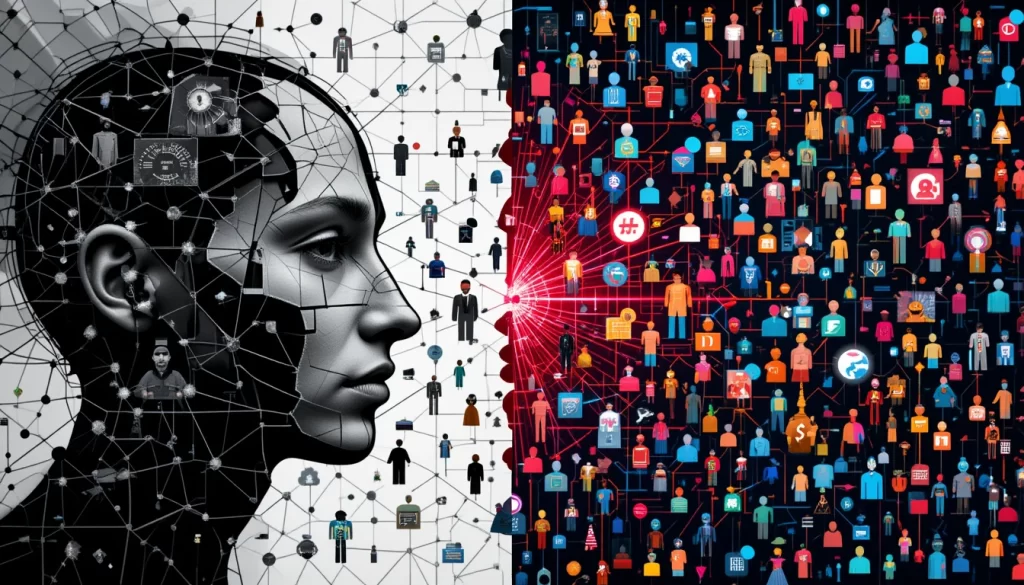Decentralized Artificial Intelligence (DeAI) is being hailed as the next frontier in technology, promising to democratize access to AI tools and decision-making processes. By leveraging blockchain’s transparent and decentralized infrastructure, DeAI aims to break the monopolistic grip that tech giants like Google and OpenAI have on artificial intelligence. However, as the DeAI movement gains momentum, a critical flaw threatens to undermine its transformative potential: the lack of diverse datasets.
Without addressing the data gap, DeAI risks replicating the same biases and inequities present in traditional AI systems. To fulfill its promise of democratizing AI, the industry must prioritize inclusivity and diversity at the foundational data level.
The problem: biased data leads to biased AI
Artificial intelligence is only as good as the data it’s trained on. Traditional AI systems have been criticized for perpetuating biases—whether in hiring algorithms, facial recognition software, or predictive policing—due to homogenous datasets that fail to represent the complexity of the real world.
DeAI platforms, despite their decentralized structure, face the same issue. If the datasets used to train decentralized AI models lack diversity, the algorithms will continue to produce biased, incomplete, and potentially harmful outputs. The difference? In DeAI, these biases are harder to trace back to a central authority, making accountability even more challenging.
Why diverse datasets matter for DeAI
- Avoiding algorithmic bias
Without diverse datasets, DeAI models are susceptible to the same algorithmic biases that plague centralized AI systems. For example, if facial recognition datasets lack sufficient representation of different ethnicities, the resulting models will perform poorly for underrepresented groups. - Enhancing accuracy and fairness
Diverse datasets ensure that AI models are exposed to a wide range of scenarios, making them more robust, accurate, and fair. This is especially critical in sectors like healthcare, finance, and law, where biased algorithms can have life-altering consequences. - Global relevance and inclusivity
DeAI platforms are designed to serve a global audience. Without diverse datasets that reflect various cultures, languages, and socio-economic backgrounds, these platforms will fail to meet the needs of the communities they aim to empower. - Trust and transparency
Decentralization alone does not guarantee trust. For DeAI to build credibility, it must demonstrate that its models are trained on datasets that represent the full spectrum of human experiences. This transparency is key to fostering user confidence.
Challenges in closing the data gap
- Data ownership and privacy concerns
One of the benefits of DeAI is giving individuals control over their data. However, this decentralization can make it difficult to gather large, diverse datasets, especially when users are wary of sharing sensitive information. - Data silos across different blockchains
The decentralized nature of DeAI means that data is often fragmented across various blockchains and platforms. This fragmentation can lead to incomplete datasets, limiting the effectiveness of AI models. - Incentivizing diverse data contributions
To create truly diverse datasets, DeAI platforms must incentivize contributions from underrepresented communities. However, offering fair compensation while maintaining data integrity and privacy remains a complex challenge. - Technical limitations and standardization
Integrating diverse datasets from multiple sources requires standardized protocols and interoperability between different blockchain networks. The lack of technical standards can hinder the seamless aggregation of diverse data.
The way forward: building a more inclusive DeAI ecosystem
- Community-driven data collection
DeAI platforms should engage with local communities to collect data that accurately reflects their experiences. This participatory approach not only enriches datasets but also fosters trust and collaboration. - Privacy-preserving data sharing
Leveraging privacy-preserving technologies like zero-knowledge proofs and differential privacy can help protect user data while allowing it to be used for training AI models. This ensures that data contributors retain control over their information. - Cross-chain interoperability
To overcome data silos, DeAI platforms must prioritize cross-chain interoperability, enabling the seamless flow of data between different blockchains. This will ensure that AI models have access to comprehensive and diverse datasets. - Incentivizing ethical data contributions
Token-based rewards and decentralized governance models can incentivize ethical data sharing. By rewarding contributions from diverse communities, DeAI platforms can create a more inclusive data ecosystem. - Transparent auditing of datasets
Open-source auditing tools should be developed to evaluate the diversity and quality of datasets used in DeAI. This transparency will allow users to assess the fairness and inclusivity of the AI models they interact with.
Conclusion
DeAI holds immense potential to democratize artificial intelligence and challenge the centralized power structures of traditional tech giants. However, without addressing the data gap, DeAI risks perpetuating the very biases it seeks to eliminate. For decentralized AI to be truly transformative, it must prioritize the creation and use of diverse, inclusive datasets.
The road to a fair and equitable AI ecosystem is not solely paved with decentralization. It requires a collective commitment to ensuring that the data feeding these models represents the full spectrum of human experience. Only then can DeAI fulfill its promise of creating technology that serves all, not just a privileged few.
